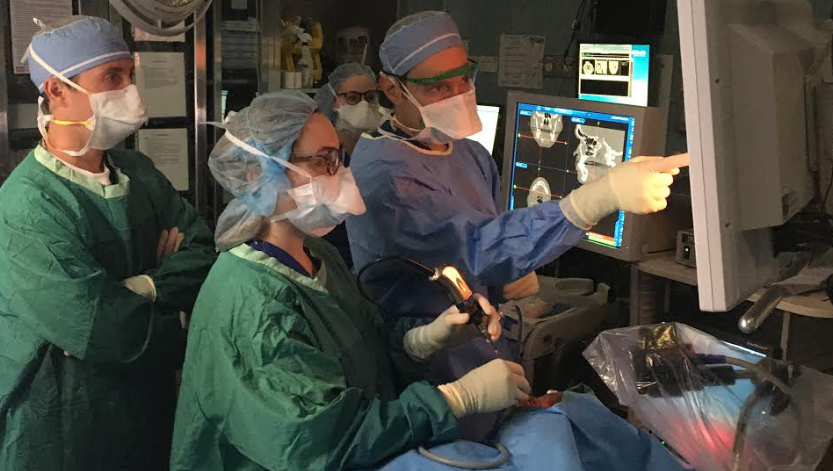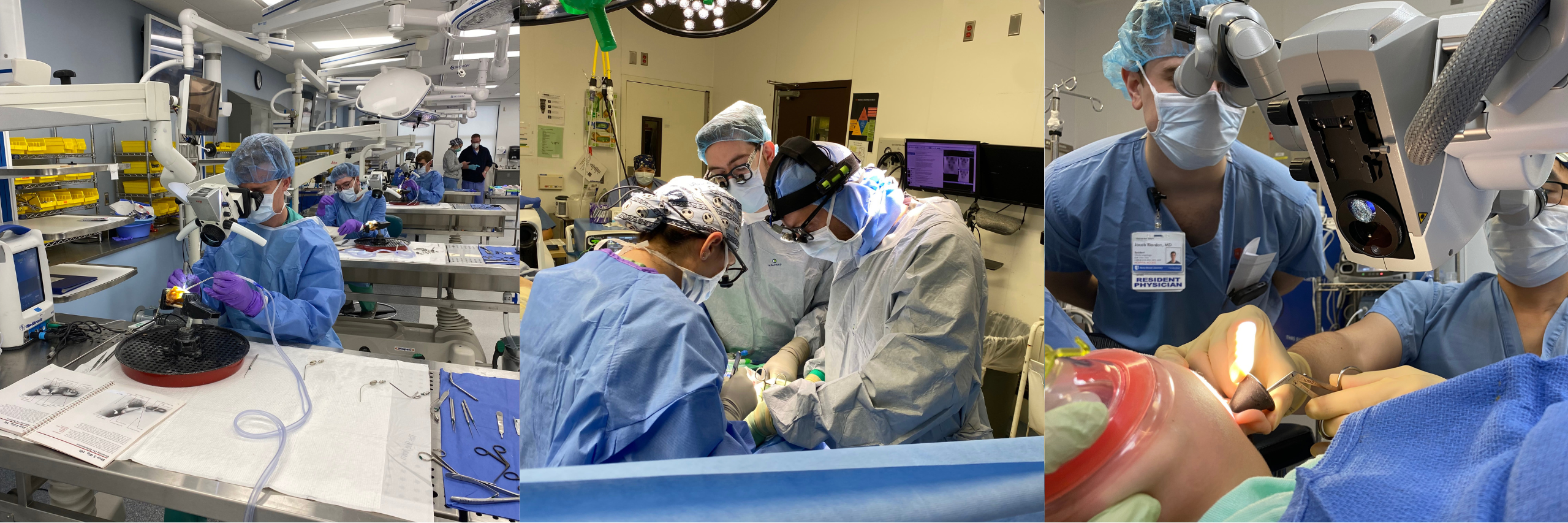Checking out the Area of Otolaryngology: What to Expect When You Get In Touch With an ENT
Otolaryngology, frequently referred to as ENT, encompasses the diagnosis and treatment of throat, ear, and nose problems. For those experiencing relevant issues, getting in touch with an ENT expert can provide quality and relief. Recognizing what to expect during such consultations is necessary for reliable communication and care. This review will detail essential aspects of the ENT experience, consisting of usual reasons for sees and the procedures included in diagnosis and treatment.

Understanding Otolaryngology: A Summary
Otolaryngology, frequently described as ENT (Throat, nose, and ear) medicine, is a specialized branch of medicine that concentrates on the diagnosis and therapy of problems impacting these crucial locations of the human body. This field incorporates a wide variety of problems, including those related to hearing, equilibrium, respiratory feature, and speech. Otolaryngologists are educated to handle both medical and surgical treatments, making use of advanced techniques and innovations. Their expertise extends past typical disorders, attending to issues such as allergic reactions, sinus infections, and hearing loss. Additionally, they play an important role in the management of head and neck cancers, offering comprehensive treatment tailored to private person requirements. Overall, otolaryngology continues to be essential for maintaining wellness and quality of life in damaged people.
Usual Factors to See an ENT Expert
Many individuals look for the know-how of an ENT professional for a variety of reasons, showing the varied nature of conditions that affect the nose, ear, and throat. Typical problems include chronic sinus problems, which often leads to persistent nasal blockage and face discomfort. Allergic reactions and their connected signs, such as sneezing and itching, additionally motivate sees to these professionals (ENT Doctor). Hearing loss, whether steady or abrupt, is one more significant factor for consultation. Additionally, people might look for assessment for throat conditions, consisting of relentless hoarseness or ingesting troubles. Sleep apnea, defined by cut off breathing throughout sleep, is frequently dealt with by ENT experts. Each of these conditions highlights the significance of specialized care in managing complex ENT-related health concerns
Planning for Your ENT Visit
When getting ready for an ENT visit, it is important to gather relevant details and take into consideration any kind of specific worries. Individuals should assemble a comprehensive medical background, consisting of previous ear, nose, or throat issues, surgeries, and existing medicines. Recording signs-- such as extent, duration, and regularity-- can give useful insights for the ENT expert. In addition, individuals need to prepare a listing of inquiries they want to ask, ensuring that all worries are resolved during the visit. Bringing along any appropriate clinical documents or examination results can better assist the ENT in recognizing the client's problem. People should confirm their visit information, consisting of date, place, and time, to minimize any last-minute confusion. Appropriate preparation can enhance the performance of the assessment and lead to better outcomes.
What to Expect Throughout the Examination
As the assessment begins, the individual can anticipate to participate in an extensive conversation with the ENT expert about their symptoms and case history. The specialist will certainly make inquiries regarding the duration, frequency, and severity of signs and symptoms such as hearing loss, nasal blockage, or sore throat. Additionally, the patient's previous clinical conditions, medications, and any kind of pertinent household history will certainly be examined, helping the specialist in creating a total understanding of the patient's wellness. The ENT may also inquire about way of living aspects, such as navigate here exposure to allergens or irritants. This open dialogue develops a structure for the assessment, guaranteeing that the patient's issues are dealt with and establishing the stage for any required examinations or referrals for treatment.
Diagnostic Examinations and Procedures in Otolaryngology
A series of analysis examinations and treatments are important in otolaryngology to accurately review and diagnose conditions impacting the ear, throat, and nose. Typical tests include audiometry, which measures hearing feature, and tympanometry, assessing center ear pressure. Nasal endoscopy enables visualization of the nasal flows and sinuses, while laryngoscopy analyzes the throat and vocal cables. Imaging strategies, such as CT scans and MRIs, provide comprehensive sights of head and neck structures. Allergy screening might also be conducted to recognize triggers for sinus or respiratory system issues. These analysis devices make it possible for ENT experts to establish a detailed understanding of people' problems, ensuring customized and efficient administration plans. Correct diagnosis is essential for successful therapy outcomes in otolaryngology.
Treatment Options Supplied by ENT Specialists
ENT experts supply a range of treatment alternatives tailored to attend to details problems influencing the nose, ear, and throat. These therapies vary from conventional techniques, such as medication and lifestyle modifications, to more invasive procedures. Allergic reactions might be handled with antihistamines or immunotherapy, while chronic sinusitis might call for nasal corticosteroids or sinus surgical treatment. For hearing loss, ENT specialists typically recommend listening device or surgical treatments like cochlear implants. In situations of throat conditions, choices can consist of speech treatment or surgeries to eliminate obstructions. Additionally, they might provide advice for taking care of rest apnea, including using CPAP tools or medical treatments. In general, the objective is to boost clients' lifestyle via personalized treatment and effective therapy methods.
When to Look For Follow-Up Care With an ENT
Acknowledging when to seek follow-up care with an ENT specialist is crucial for managing ongoing signs or issues connected to throat, nose, and ear conditions. Patients ought to think about setting up a follow-up consultation if symptoms persist in spite of preliminary treatment, such as persistent ear pain, nasal blockage, or throat discomfort. Changes in hearing, balance issues, or uncommon nasal discharge might likewise call for more evaluation. Additionally, if a client experiences side impacts from recommended medicines or has gone through a surgery, follow-up care is very important to keep track of recovery and deal with any concerns. Prompt consultations can guarantee reliable monitoring of problems, stop prospective problems, and offer satisfaction regarding one's health. Looking for follow-up care promotes aggressive health and wellness administration in otolaryngology.
Frequently Asked Inquiries

What Credentials Should I Try to find in an ENT Expert?
When seeking an ENT specialist, one need to search for board accreditation, appropriate experience, and solid person testimonials. In addition, effective communication skills and a thoughtful strategy can considerably improve the overall therapy experience.
Exactly how Do I Choose the Right ENT for My Demands?
Selecting the best ENT specialist includes assessing their credentials, experience, and patient testimonials (Hearing). It is necessary to consider their communication style and approach to therapy, guaranteeing they line up with the person's particular wellness requirements and choices
Are There Any Type Of Threats Connected With ENT Procedures?
The threats connected with ENT treatments may include infection, blood loss, anesthesia issues, and potential damage to bordering frameworks. Clients need to talk about these dangers with their medical professional to comprehend camila cabello the voice private issues and assurance informed choices.
Just How Can I Manage Anxiousness Prior To My ENT Appointment?
To handle stress and anxiety prior to an appointment, individuals can exercise deep breathing workouts, envision favorable outcomes, prepare questions ahead of time, and look for assistance from pals or family members, cultivating a sense of reassurance and peace.
What Should I Do if I Experience Adverse Effects From Treatment?
If adverse effects from treatment occur, the individual ought to immediately report them to their doctor. Adjustments to treatment or added treatments might be needed to ensure security and efficiency in managing their problem - Otolaryngologist. As the consultation starts, the client can anticipate to involve in a thorough discussion with the ENT specialist about their signs and symptoms and medical history. These analysis tools enable ENT professionals to establish a complete understanding of individuals' conditions, ensuring tailored and efficient administration strategies. ENT experts offer a range of treatment alternatives customized check over here to deal with details problems affecting the ear, nose, and throat. When looking for an ENT expert, one need to look for board accreditation, relevant experience, and strong person evaluations. Picking the ideal ENT specialist includes reviewing their certifications, experience, and person evaluations